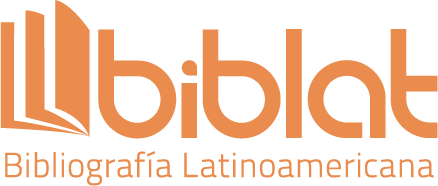Parentalidad, apego y desarrollo infantil
DOI:
https://doi.org/10.32870/punto.v1i14.135Palabras clave:
parentalidad, apego, adversidad temprana, desarrollo infantil, prevenciónResumen
Las experiencias del niño con sus padres juegan un papel clave en el desarrollo infantil. El cuidado parental promueve el desarrollo cognitivo, emocional y social; en contraste, la parentalidad basada en el rechazo, el maltrato y la negligencia está asociada a problemas psicológicos y de comportamiento, así como a dificultades en los futuros procesos de parentalidad. Este artículo tiene el objetivo de informar acerca de algunos de los mecanismos psicológicos y neurobiológicos que incrementan el riesgo de transmisión intergeneracional de la adversidad temprana. Asimismo, se describen algunas intervenciones concretas para el desarrollo del potencial infantil.
Citas
Ainsworth, M., Blehar, M., Waters, E. & Wall, S. (1978). Patterns of attachment: a psychological study of the strange situation Erlbaum
Beebe, B., Jaffe, J., Markese, S., Buck, K., Chen, H., Cohen, P. Bahrick, L. Howard, A. & Feldstein, S. (2010). The origins of 12-month attachment: a microanalysis of 4-month mother-infant interaction Attachment and Human Development, 12(1–2), 3–141 https://doi org/101080/14616730903338985
Belsky, J., Garduque, L. & Hrncir, E. (1984). Assessing performance, competence and executive capacity in infant play: Relations to home environment and security of attachment Developmental Psychology, 20, 406–417
Bornstein, M. (2015). Children’s parents. En M. Bornstein & T. Leventhal (Eds), Handbook of child psychology and developmental science (vol. 4). Ecological settings and processes in developmental systems (pp 55–132) Wiley
Bos, K., Zeanah, Ch., Fox, N., Drury, S., McLaughlin, K. & Nelson, C (2011). Psychiatric outcomes in young children with a history of institutionalization Harvard Review of Psychiatry, 19(1), 15-24
Bowlby, J. (1969. El apego Paidós
Culpin, I., Bornstein, M., Putnick, D., Sallis, H., Lee, R., Cordero, M. & Pearson, R. (2019). Specific domains of early parenting, their heritability and differential association with adolescent behavioural and emotional disorders and academic achievement European Child & Adolescent Psychiatry, 29, 1401-1409 https://doiorg/101007/ s00787-019-01449-8
Daniel, E., Madigan, S. & Jenkins, J. (2016). Paternal and maternal warmth and the development of prosociality among preschoolers Journal of Family Psychology, 30(1), 114 https://doiorg/101037/fam0000120
De Wolff, M. & van Ijzendoorn, M. (1997). Sensitivity and attachment: a meta-analysis on parental antecedents of infant attachment Child Development, 68, 571–591
Diggs, O., Neppl, T., Jeon, S. & Lohman, B. (2017). The association of harsh parenting, parent-child communication, and parental alcohol use with male alcohol use into emerging adulthood. Journal of Adolescent Health, 61(6), 736-742 https://doiorg/101016/jjadohealth201706025
Fleming, A., Kraemer, G., Gonzalez, A., Lovic, V., Rees, S. & Melo, A. (2002). Mothering begets mothering: the transmission of behavior and its neurobiology across generations Pharmacology
Biochemistry and Behavior, 73(1), 61-75 https://doiorg/101016/ S0091-3057(02)00793-1
Feldman, R. (2019). The social neuroendocrinology of human parenting. En M Bornstein (Ed), Handbook of parenting (vol 2). Biology and ecology of parenting (pp 220-249) Routledge
Garthe, R., Sullivan, T. & Gorman-Smith, D. (2019). The family context and adolescent dating violence: a latent class analysis of family relationships and parenting behaviors Journal of Youth and Adolescence,
(7), 1418-1432. https://doi.org/10.1007/s10964-019-01051-w
Gerin, M (2019) A mechanistic investigation of neuro-cognitive and experiential factors associated with psychiatric vulnerability following childhood maltreatment (Tesis de doctorado, University College de London)
Gonzalez, A., Jenkins, J., Steiner, M. & Fleming, A. (2009). The relation between early life adversity, cortisol awakening response and diurnal salivary cortisol levels in postpartum women. Psychoneuroendocrinology, 34, 76–86 https://doiorg/101016/j psyneuen200808012
Gonzalez, A., Jenkins, J., Steiner, M. & Fleming, A. (2012). Maternal early life experiences and parenting: the mediating role of cortisol and executive function. Journal of the American Academy of Child & Adolescent Psychiatry, 51(7), 673-682
Goulter, N, McMahon, R, Pasalich, D & Dodge, K (2019) Indirect effects of early parenting on adult antisocial outcomes via adolescent conduct disorder symptoms and callous-unemotional traits Journal of
Clinical Child & Adolescent Psychology, 1-13 https://doiorg/10108
/1537441620191613999
Harlow, H. & Suomi, S. (1971) Social recovery by isolation-reared monkeys. Proceedings of National Academy of Sciences of the United States of America, 68(7), 1534–1538
Hein, T. & Monk, C. (2017). Research review: neural response to threat in children, adolescents, and adults after child maltreatment –A quantitative meta-analysis Journal of Child Psychology and Psychiatry,
, 222–230 https://doiorg/101111/jcpp12651
Ho, S. & Swain, J. (2017). Depression alters maternal extended amygdala response and functional connectivity during distress signals in attachment relationship Behavioural Brain Research, 325, 290–296 https:// doiorg/101016/jbbr201702045
Hoffmann, F., Viding, E., Puetz, V., Gerin, M., Sethi, A., Rankin, G. & McCrory, E (2018) Evidence for depressogenic spontaneous thoughts and altered resting-state connectivity in adolescents with a maltreatment history Journal of the American Academy of Child & Adolescent Psychiatry, 57(9), 687-695 https://doiorg/101016/j jaac201805020
Kim-Cohen, J., Moffitt, T., Taylor, A., Pawlby, S. & Caspi, A. (2005). Maternal depression and children’s antisocial behavior: nature and nurture effects. Archives of General Psychiatry, 62(2), 173-181 https://doiorg/103389/fpsyg201400966
Kim, P., Leckman, J., Mayes, L., Newman, M., Feldman, R. & Swain, J. (2010). Perceived quality of maternal care in childhood and structure and function of mothers’ brain Developmental Science, 13(4), 662–673. https://doi.org/10.1111/j.1467-7687.2009.00923.x
Kingsbury, M, Sucha, E, Manion, I, Gilman, S & Colman, I (2019) Adolescent mental health following exposure to positive and harsh parenting in childhood The Canadian Journal of Psychiatry, 65(5), 392-400 https://doiorg/101177/0706743719889551
Knauer, H., Ozer, E., Dow, W. & Fernald, L. (2019). Parenting quality at two developmental periods in early childhood and their association with child development. Early Childhood Research Quarterly, 47,
-404 https://doiorg/101016/jecresq201808009
Leckman, J. & Mayes, L. (1998). Understanding developmental psychopathology: How useful are evolutionary perspectives? Jornal of the American Academy of Child and Adolescencet Psychiatry, 37, 1011–1021 https://doiorg/101097/00004583-199810000-00010
Lorenz, K. (1943). The innate forms of potential experience. Zeitschrift für Tierpsychologie, 5(2), 233-519
Lyengar U, Kim S, Martinez S, Fonagy P & Strathearn L (2014) Unresolved trauma in mothers: intergenerational effects and the role of reorganization Frontiers in Psychology, 5, 966 https://doi org/103389/fpsyg20140096
Lyons-Ruth, K, Bronfman, E & Parsons, E (1999) Maternal frightened, frightening, or a typical behavior and disorganized infant attachment patterns Monographs of the Society for Research Child Development 64, 67–96 https://doiorg/101111/1540-583400034
Main, M. & Goldwyn, R. (1984). Predicting rejection of her infant from mother’s representation of her own experience: implications for the abused-abusing intergenerational cycle Child Abuse & Neglect, 8(2), 203– 217
Main, M., Goldwyn, R. & Hesse, E. (2003). Adult attachment scoring and classification systems Universidad de California
McCrory, E., Gerin, M. & Viding, E. (2017). Annual research review: childhood maltreatment, latent vulnerability and the shift to preventative psychiatry -the contribution of functional brain imaging Journal of Child Psychology and Psychiatry, 58(4), 338–357 https://doi org/101111/jcpp12713
McEwen, B. (2006). Protective and damaging effects of stress mediators: central role of the brain Dialogues in Clinical NeuroScience, 8(4), 367–81
McLaughlin, K., Peverill, M., Gold, A., Alves, S. & Sheridan, M. (2015) Child maltreatment and neural systems underlying emotion regulation. Journal of the American Academy of Child & Adolescent Psychiatry, 54(9), 753-762 https://doiorg/101016/jjaac201506010
Meaney, M. (2001). Maternal care, gene expression, and the transmission of individual differences in stress reactivity across generations. Annual review of neuroscience, 24(1), 1161-1192
Morelen, D., Shaffer, A. & Suveg, C. (2014). Emotion regulation maternal emotion regulation: links to emotion parenting and child. Journal of Family Issues, 37(13), 1891-1916 https://doiorg/101177/0192513X14546720
Pollak, S., Messner, M., Kistler D. & Cohn, J. (2009). Development of perceptual expertise in emotion recognition. Cognition, 110, 242–247 https://doiorg/101016/jcognition200810010
Puetz, V., Viding, E., Hoffmann, F., Gerin, M., Sharp, M., Rankin, G. Maguire, E., Mechelli, A. & McCrory, E. (2020). Autobiographical memory as a latent vulnerability mechanism following childhood maltreatment: association with future depression symptoms and prosocial behavior Development and Psychopathology, 1-8 https://doi org/101017/S0954579420000504
Rutherford, H. & Mayes, L. (2019). Parenting stress: A novel mechanism of addiction vulnerability Neurobiology of Stress, 11, 100172 https:// doiorg/101016/jynstr2019100172
Sandoval-Carrillo, I, Hernández-González, M, Guevara, M & Hidalgo-Aguirre, R. (2020). Baby crying induces different cortical activation in mothers with secure and insecure attachment. Parenting, 20(4), 1-9 https://doiorg/101080/1529519220201796178
Shonkoff, J., Boyce, W., Levitt, P., Martinez, F. & McEwen, B. (2021). Leveraging the biology of adversity and resilience to transform pediatric practice Pediatrics, 147(2) https://doiorg/101542/peds2019-3845
Spitz, R (1965) El primer año de vida del niño Fondo de Cultura Económica
Steele, H., Steele, M. & Fonagy, P. (1996). Associations among attachment classifications of mothers, fathers, and their infants. Child Development, 67, 541–555
Strathearn, L., Fonagy, P., Amico, J. & Montague, P. (2009). Adult attachment predicts mother’s brain and oxytocin response to infant cues Neuropsychopharmacology, 34, 2655–2666 https://doi org/101038/npp2009103
Von Suchodoletz, A., Trommsdorff, G. & Heikamp, T. (2011). Linking maternal warmth and responsiveness to children’s self‐regulation.
Social Development, 20(3), 486-503 https://doiorg/101111/j14679507.2010.00588.x
Williams, J., Ellis, N., Tyers, C., Healy, H., Rose, G. & Macleod, A. (1996). The specificity of autobiographical memory and imageability of the future Memory & cognition, 24(1), 116-125 https://doi org/103758/BF03197278
Publicado
Versiones
- 2022-02-24 (2)
- 2022-01-01 (1)
Cómo citar
Número
Sección
Licencia

Esta obra está bajo una licencia internacional Creative Commons Atribución-NoComercial 4.0.
Los autores/as que publiquen en esta revista aceptan las siguientes condiciones:
De acuerdo con la legislación de derechos de autor, Punto Cunorte reconoce y respeta el derecho moral de los autores, así como la titularidad del derecho patrimonial. Bajo la iniciativa de Budapest de acceso abierto, el autor otorga derechos conexos a la Universidad de Guadalajara, al Centro Universitario del Norte y a la revista Punto Cunorte para su difusión en acceso abierto. Punto Cunorte no realiza cargos a los autores por enviar y procesar artículos para su publicación.
Los autores/as pueden realizar otros acuerdos contractuales independientes y adicionales para la distribución no exclusiva de la versión del artículo publicado en Punto Cunorte (por ejemplo incluirlo en un repositorio institucional o publicarlo en un libro) siempre que indiquen claramente que el trabajo se publicó por primera vez en Punto Cunorte.
Esta obra está bajo una Licencia Creative Commons Atribución-NoComercial 4.0 Internacional.













